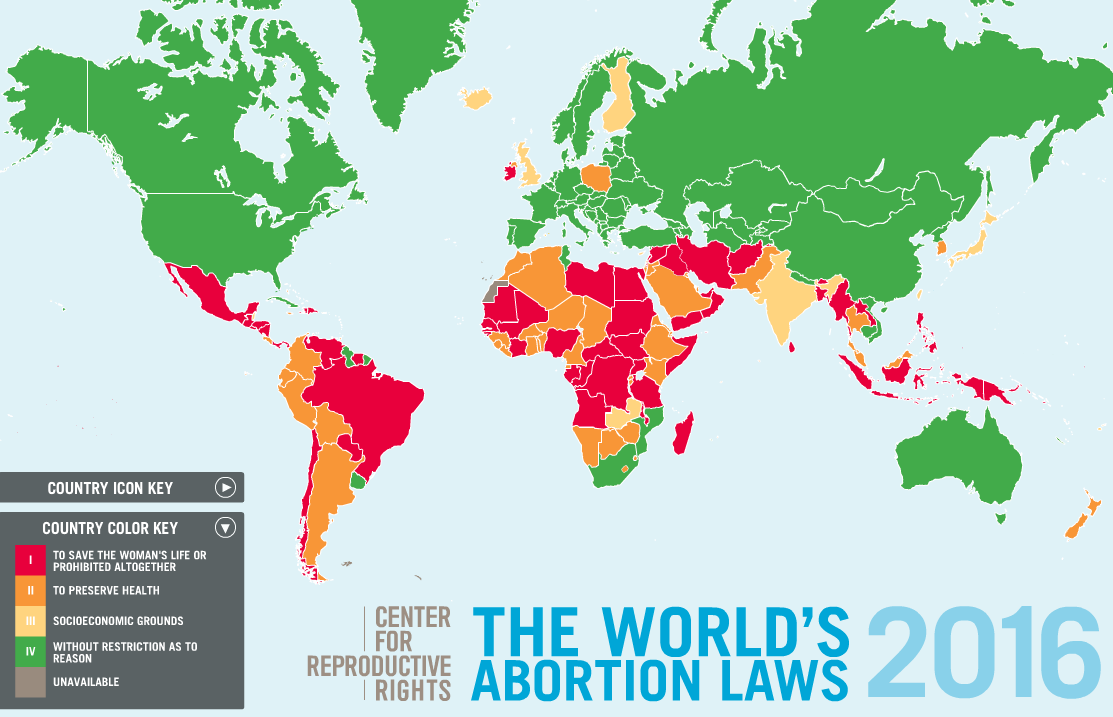The countries that don't allow abortion to even rape victims

In the countries that don't allow abortion to even rape victims subject women to suffering and discrimination Image: REUTERS/Kacper Pempel
“Cruel, inhuman, and degrading.” Those were the words used by a UN panel last week to refer to Ireland’s abortion laws, which it says subject women to suffering and discrimination. Described as groundbreaking, the ruling called on Ireland to change its laws to ensure women there have access to safe abortion services.
Strict abortion laws
Up until recently, Ireland was one of the countries that don't allow abortion under all circumstances. A change to the law in 2013 – pushed through after the outrage that followed the death of Savita Halappanavar, whose life could have been saved by a termination – legalized abortions when a woman’s life is in danger.
While women’s rights campaigners celebrated that ruling, Ireland’s abortion laws are still among the strictest in the world. If a victim of rape or incest were to seek out an abortion, for example, she could face up to 14 years in prison.
Ireland might be an anomaly among European countries – only Malta and Vatican City have even stricter laws – but it’s certainly not the only place in the world where women can only access abortions under the most limited of circumstances.
Countries that don't allow abortion
Along with Malta and Vatican City, four countries prohibit abortion under all circumstances: Chile, Dominican Republic, El Salvador, and Nicaragua, all in Latin America. Some of these countries have been badly hit by the Zika virus, which has been linked to neonatal malformations. While the UN has called on them to relax their abortion laws, the likes of El Salvador have instead urged women to delay having babies by several years.
In the Middle East, all countries allow abortion if the mother’s life is in danger, but only four of 18 countries allow it in cases of rape or incest.
Even in places where abortion is legal, obstacles often stop women from accessing the service. Take the example of the US, where women have a constitutionally protected right to abortion. In states such as Texas or Louisiana, local authorities have attempted to prevent women from exercising these rights by imposing such severe restrictions on clinics that most are forced to close.
It’s not a new development: back in 2011, 38% of American women lived in a county with no abortion clinic. Texas – a state with the land mass of France and a population larger than Australia’s – has just 10 abortion clinics, forcing women to drive hundreds of miles to access a safe abortion.
The latest UN ruling on the situation in Ireland, while carrying no legal weight, does place pressure on the countries that don't allow abortion to revisit their strict laws surrounding the issue.
Have you read?
Don't miss any update on this topic
Create a free account and access your personalized content collection with our latest publications and analyses.
License and Republishing
World Economic Forum articles may be republished in accordance with the Creative Commons Attribution-NonCommercial-NoDerivatives 4.0 International Public License, and in accordance with our Terms of Use.
The views expressed in this article are those of the author alone and not the World Economic Forum.
Stay up to date:
Future of Global Health and Healthcare
Forum Stories newsletter
Bringing you weekly curated insights and analysis on the global issues that matter.
More on Equity, Diversity and InclusionSee all
Marielle Anzelone and Georgia Silvera Seamans
October 31, 2025







